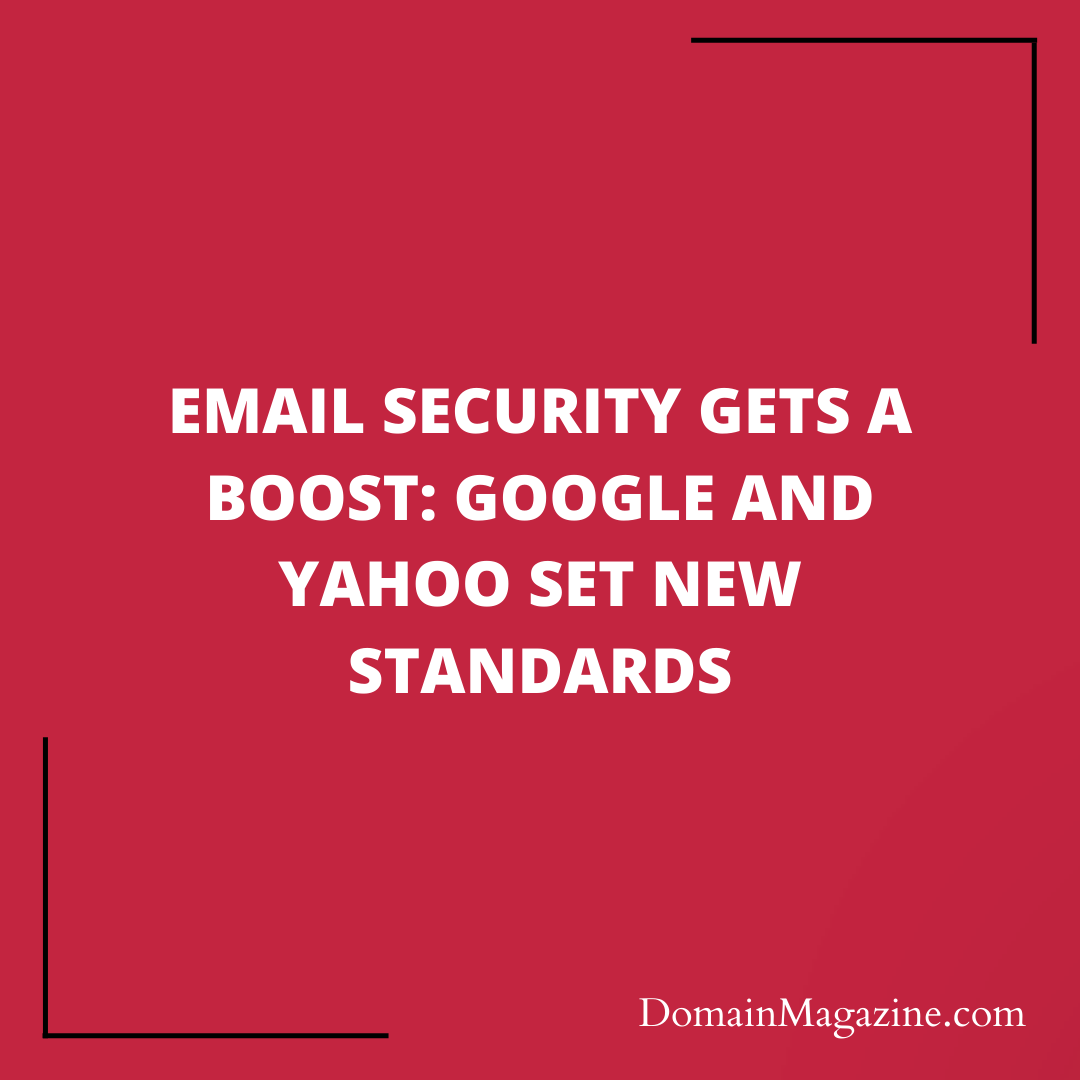In a significant move to enhance email security, tech giants Google and Yahoo have jointly announced new requirements set to reshape the way companies send emails through their platforms. Starting from February 2024, any organization sending over 5,000 email messages through Google or Yahoo will be obligated to adopt an essential authentication technology known as Domain-based Message Authentication Reporting and Conformance (DMARC).
While these requirements are initially aimed at improving email marketing practices, their implications extend far beyond the world of marketing, affecting companies across various industries. Let’s delve into what this means for email senders, why it’s happening, and how it can impact your inbox.

The Basics of DMARC and Email Authentication
At its core, DMARC, or Domain-based Message Authentication Reporting and Conformance, is a technology that aims to make email more secure. It works alongside two other authentication technologies: Sender Policy Framework (SPF) and DomainKeys Identified Mail (DKIM). Together, these technologies help verify the authenticity of email senders and protect against impersonation and email spoofing.
SPF (Sender Policy Framework): SPF specifies which servers are authorized to send email on behalf of a particular domain. It’s like a whitelist for email servers.
DKIM (DomainKeys Identified Mail): DKIM adds a digital signature to an email, verifying that it was sent by the domain it claims to originate from.
DMARC: DMARC builds on SPF and DKIM by providing a notification channel back to the domain-name owner. It allows them to gather information about whether their email is being spoofed or abused.
Why Are Google and Yahoo Implementing These Requirements?
The accelerated adoption of these email security technologies is partly a response to the challenges posed by the COVID-19 pandemic. With companies shifting to remote work, email became an even more critical communication tool. Consequently, about half of email senders now have a DMARC record in place. However, only 14% enforce strict DMARC policies that actively reject or quarantine suspicious emails.
Google and Yahoo are stepping in to push for broader adoption of these security measures. Their aim is to create a safer email environment for users by making it more difficult for cybercriminals to impersonate legitimate senders and launch phishing attacks.
Benefits of DMARC Adoption
While it might seem like an added administrative task, adopting DMARC can bring tangible benefits to email senders. By implementing DMARC, companies receive valuable insights into the configuration of their email systems. This information helps identify issues and weaknesses that need attention, ultimately improving email security.
The Road Ahead
The requirements set by Google and Yahoo represent a significant step toward making DMARC adoption the norm rather than the exception. This move is expected to encourage more companies to embrace email authentication actively.
However, some experts believe that these requirements are just the beginning. Industry insiders hope that major email providers will continue to raise the bar for email security, ensuring that best practices are consistently applied across the board.
What to Expect
As these new requirements come into effect, legitimate marketing firms and other email senders will likely tune up their email security configurations. This, in turn, should help reduce spam and phishing attempts.
Nevertheless, it’s important to acknowledge that cybercriminals are resourceful. Bad actors may attempt to circumvent these requirements or find new ways to send malicious emails. Therefore, it remains crucial for organizations to remain vigilant and take a holistic approach to email security.
In conclusion, the email landscape is evolving, and Google and Yahoo’s requirements are a clear signal that email authentication technologies like DMARC, SPF, and DKIM are no longer optional but essential tools for safeguarding digital communication. While these measures won’t eliminate all email security threats, they represent a significant step toward a more secure and trustworthy email ecosystem.
Source: https://www.darkreading.com/dr-tech/google-yahoo-push-dmarc-forcing-companies-to-catch-up


Join the Discussion